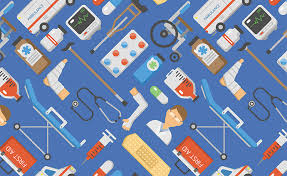Noting from studies how easily AI-powered chatbots can be manipulated to craft convincing phishing emails.
Connected care in the home has the potential to address both the preferences of older adults and the societal imperative to care for a rapidly growing aging population
A practical guide to understanding autonomous AI agents, why they matter for healthcare governance, and what to do about them.
The growing ecosystem of devices and products serving peoples’ health and well-being shows us that innovators already see the opportunity to serve the fast-growing market for self-care among people 50 years of age and up.
For nearly twenty years, one thing has felt inevitable: when boomers reach “old age,” senior living demand will surge. And yet ..

 For a Chief Medical Officer, what role does technology play? Recently there was an opportunity to query executives in senior care, including Dr. Arif Nazir, Chief Medical Officer, Signature HealthCARE, who was asked about the technology impact on long-term care jobs. The insights quoted here could be generalized, not just to Skilled Nursing Facilities, but to all types of care delivery – and are particularly notable in the context of last week’s New York Times article: "
For a Chief Medical Officer, what role does technology play? Recently there was an opportunity to query executives in senior care, including Dr. Arif Nazir, Chief Medical Officer, Signature HealthCARE, who was asked about the technology impact on long-term care jobs. The insights quoted here could be generalized, not just to Skilled Nursing Facilities, but to all types of care delivery – and are particularly notable in the context of last week’s New York Times article: " Consider the white paper -- more content than a tweet or blog post. White papers have long been viewed as content marketing vehicles, intended to showcase a product or concept relevant to the firm’s customers and prospects. According to Jonathan Kantor, a
Consider the white paper -- more content than a tweet or blog post. White papers have long been viewed as content marketing vehicles, intended to showcase a product or concept relevant to the firm’s customers and prospects. According to Jonathan Kantor, a